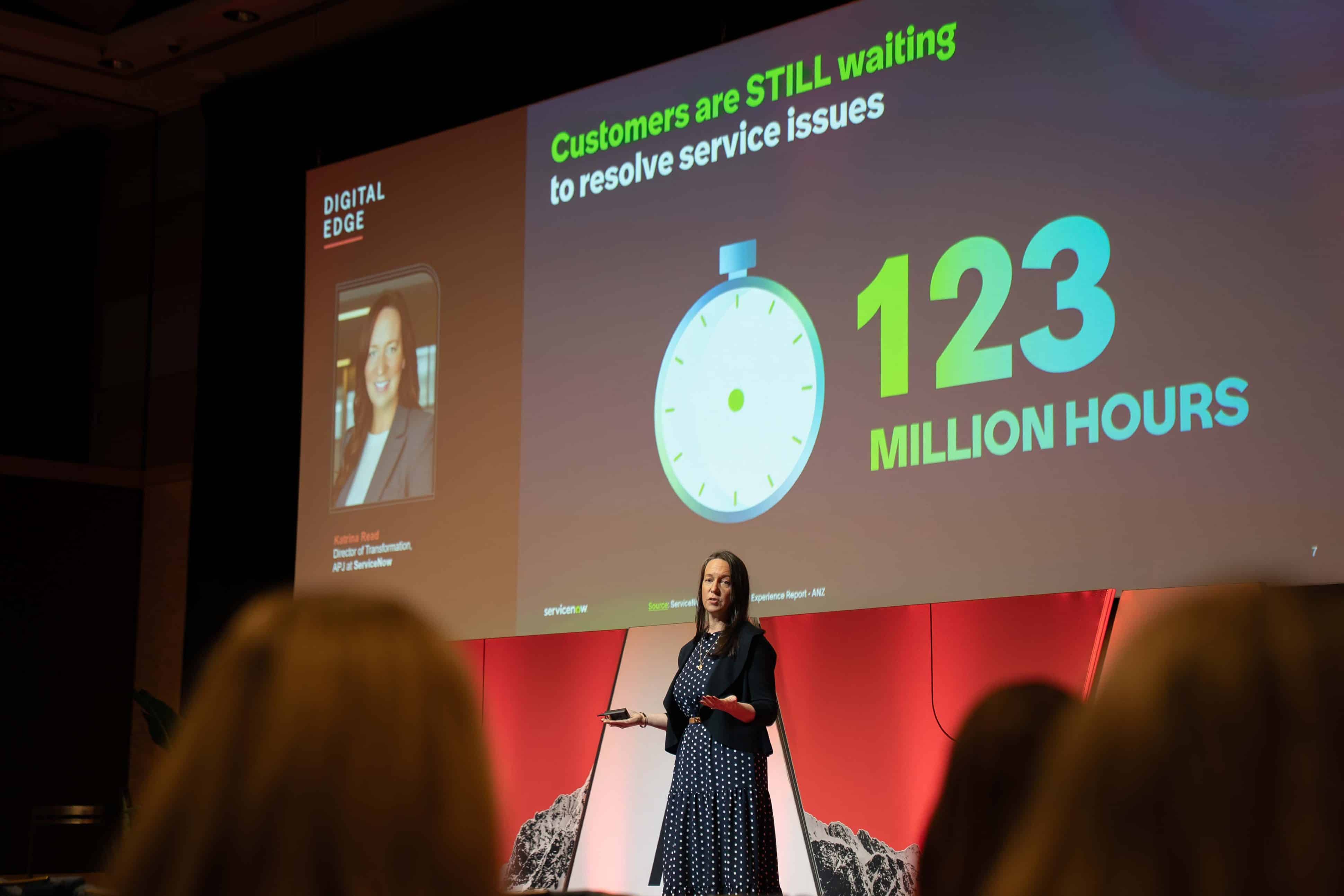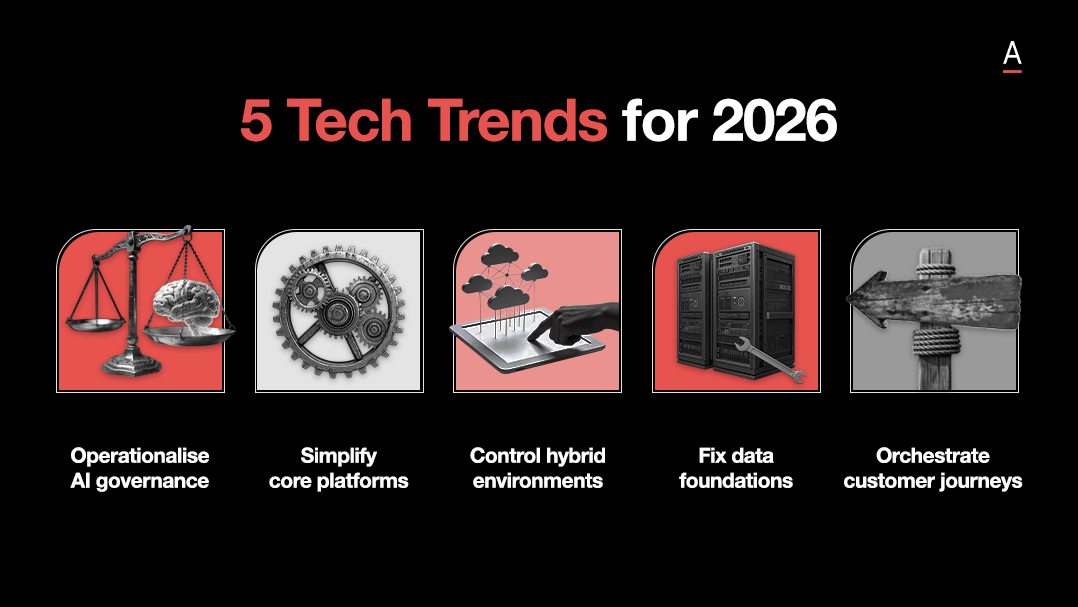At Digital Edge, ServiceNow’s Katrina Read revealed how AI can streamline service delivery, reduce churn and address a growing $5.4B productivity drain.
Katrina Read, Director of Transformation for APJ at ServiceNow, shared how legacy processes and fragmented systems are holding back service and sales performance.
Many organisations digitise outdated workflows without redesigning them. As a result, agents are left navigating a maze of more than 360 systems to resolve a single issue.
This complexity feeds a growing disconnect between internal perception and customer reality.
While 69% of agents believe they resolve issues in under 30 minutes, customers report an average resolution time of 5.2 days.
In 2024 alone, Australians spent 123 million hours on hold, up from 107 million in 2023, costing the economy $5.4 billion in lost productivity.
Customer expectations are shifting.
63% prefer self-service, and 43% expect access 24/7.
Yet agents spend just 19% of their time on actual issue resolution.
The rest is lost to inefficient workflows, siloed teams and manual admin.
Katrina shared her own experience switching telcos after a week-long delay replacing a modem, despite 20 years of brand loyalty.
Time now outweighs cost as the key driver of customer satisfaction.
Poor service drives fast decisions. 80% of customers would request a refund after a negative experience.
62% would leave a poor review, and 57% would switch providers.
Businesses that fail to deliver seamless, consistent and responsive support risk losing both revenue and reputation.
AI offers a path forward, but adoption is slow.
Only 12% of Australian companies currently use AI in customer service.
Yet 29% of agents say it would free time for higher-value work, and 22% believe it would improve performance.
AI should not replace people. It should automate repetitive tasks so agents can focus on complex, high-empathy interactions.
Platforms like ServiceNow consolidate systems and help teams act faster.
While national enterprise AI maturity is declining, local leaders such as Orica, Griffith University, and ANZ Bank are setting the pace globally.
With 70% of CIOs now investing in generative AI and 4% of IT budgets going to it, the next step is shifting from deployment to impact.
Organisations that redesign processes and apply AI where it delivers real outcomes will close the service gap, and retain customers through speed, simplicity, and human connection.
Key takeaways
- The service perception gap is costing Australia billions – 69% of agents believe they resolve issues in 30 minutes, but customers report 5.2 days. Australians spent 123 million hours on hold in 2024, costing $5.4B.
- Customer expectations are unforgiving – 80% would request a refund after a bad experience, 62% would leave a negative review, and 57% would switch to a competitor.
- AI can help but must be deployed with purpose – Only 12% of companies use AI in customer service, despite its ability to reduce admin and improve outcomes. The goal is faster resolution with a human touch.





























